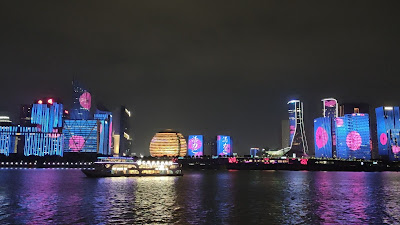Fengshui 风水
Today we will talk about Fengshui 风水, known all over the world with different pronunciations and believes.
I have been asking some people what they know or think about it, and, also looking for information on the web, I understood that many people don’t really know what 风水 is, there are thousands of different definitions, from who thinks it is just magic to who says it is science.
To understand what it is, we should start from its origin.
The 风水has a long history, it is attributed to Fuxi and Huangdi, the first Chinese emperors, that lived more than 5000 years ago.
Fengshui is without any doubt connected to Taoism, which focuses on the effects that changes have on humans. (all the theory of yin and yang is based on continuous change, I’ll write another article about it)
The name: 风水, literally wind and water.
风means wind, maybe as breath, and represents the yang.
水means water and it represents the component yin and brings prosperity.
Just looking at the name, we can see how the basic principle behind it is the balance between yin and yang, which are, in this case, applied to the spaces that surround us.
It first studies the mechanism through which the environment influences people, and then adapts a specific place to its function. (office, bedroom, kitchen..)
In the past, this practice was fundamental in the choice of where to raise
a new village or where to bury important people, like an emperor.
Nowadays it is important, mostly in Asia, to decide the right location where to build new houses, when to do it, and settle all the furniture.
It is essential for people that work in the architecture field to know about the 风水 and apply its features when creating a new project.
It could look like that nowadays it mostly regards inner spaces, but can it influence the aspect of a city?
The answer is yes, there’s a city in China that spent one billion dollars to build its centre based on the 风水. We are talking about the city I fell in love with as soon as I arrived for the first time in China, 杭州 Hangzhou.
As we said before, water is a source of prosperity and wealth. In Hangzhou that source is the Qiantang River. On the side of that river, there are three symbolic buildings, one looks like a sun (they held the G20 there), in front of it there is a structure that looks like a moon, and, if you follow the path between the sun and the moon, you will reach a huge building that recalls six people standing up holding hands.
The positive energy comes from the river, goes past the sun and the moon, and reaches the six people standing, which finally spread that energy to the entire city.
In 2016, Hangzhou held an important and international meeting, the G20.
To welcome it, the city arranged an amazing light show, that includes all the buildings of the stunning skyline.
From that moment the show became a tradition of this spectacular city. It repeats every week on Tuesday, Friday, and Saturday.

I thought it would be interesting to do a podcast episode about fengshui with you,俄国女生讲风水会有异国情调的效果. I study in hangzhou too, if you are interested in this.
ReplyDeleteSorry, 「外国女生」,打错了。
DeleteHi, sorry for late reply, sure
Delete